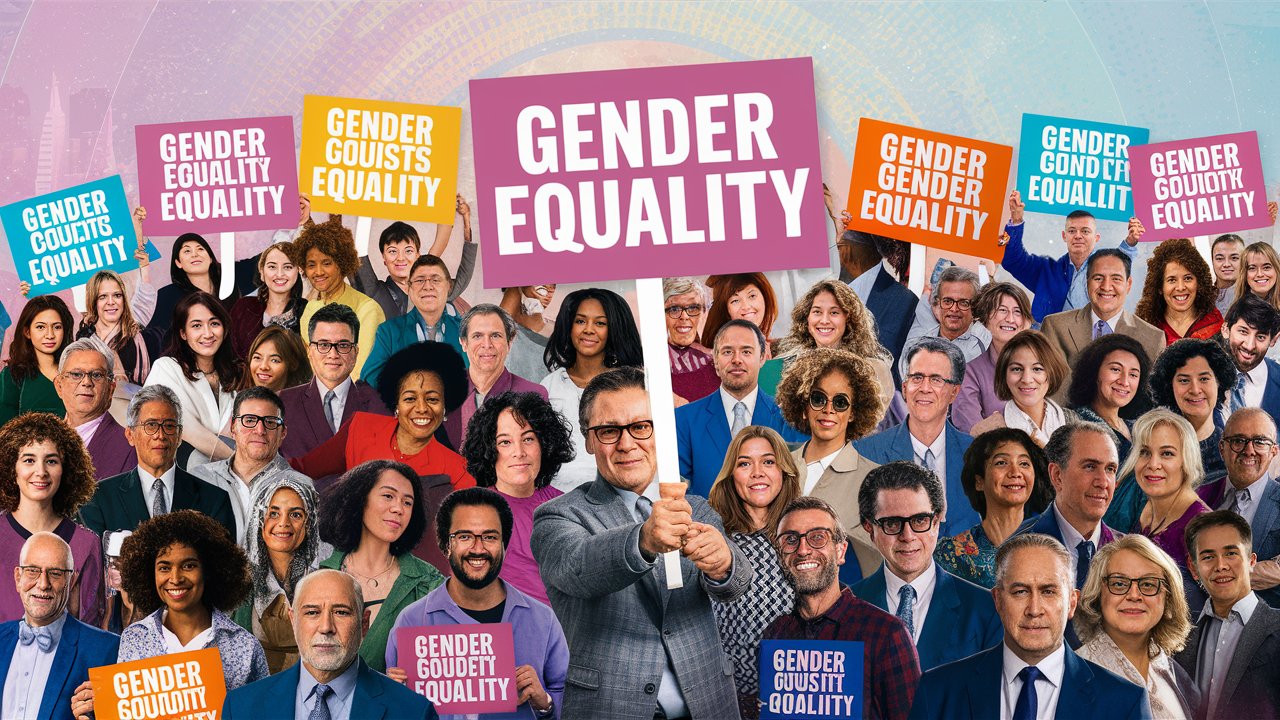7. Gender equality: A popular slogan. 2021

Gender equality: A popular slogan 2021
Introduction
Gender equality is a popular slogan that has been championed by activists, policymakers, and social movements worldwide. It refers to the belief that individuals should be treated equally regardless of their gender, and that gender should not be a factor in determining one’s rights, opportunities, or treatment. While progress has been made in advancing gender equality, there is still much work to be done to achieve true gender parity. The purpose of this essay is to explore the concept of gender equality, its importance, and the challenges that still exist in achieving it.
Defining Gender Equality
Gender equality is the belief that all individuals, regardless of their gender, should have equal rights, opportunities, and treatment. This means that women and men should have the same access to education, employment, healthcare, and political participation, among other areas. Gender equality also means that individuals should be free from gender-based discrimination, violence, and harassment.
Importance of Gender Equality
- Human Rights
Gender equality is a fundamental human right. The Universal Declaration of Human Rights, adopted by the United Nations General Assembly in 1948, states that “all human beings are born free and equal in dignity and rights.” Gender equality is essential to realizing this vision, as it ensures that all individuals, regardless of their gender, are entitled to the same rights and protections under the law.
- Economic Development
Gender equality is also essential for economic development. Research has shown that countries with higher levels of gender equality tend to have higher levels of economic growth. This is because gender equality promotes the full participation of women in the labor force, which can lead to increased productivity, higher incomes, and greater economic stability.
- Social Justice
Gender equality is also essential for social justice. Women and girls are often the most marginalized and disadvantaged members of society, and gender inequality can exacerbate these disparities. Achieving gender equality can help to promote greater social justice by ensuring that all individuals, regardless of their gender, have the same opportunities to thrive and succeed.
Challenges to Achieving Gender Equality
Despite the importance of gender equality, there are still significant challenges that must be addressed to achieve true gender parity. Some of these challenges include:
- Gender-Based Violence
Gender-based violence, including sexual harassment and domestic violence, is a significant obstacle to gender equality. Women and girls are disproportionately affected by gender-based violence, and it can prevent them from accessing education, employment, and other opportunities.
- Gender Stereotypes
Gender stereotypes, or the belief that certain behaviors, roles, and traits are inherently masculine or feminine, can also be a barrier to gender equality. These stereotypes can limit individuals’ opportunities based on their gender and perpetuate discrimination and inequality.
- Gender Wage Gap
The gender wage gap, or the difference in pay between men and women for equivalent work, is another obstacle to gender equality. Despite some progress in closing the gap, women still earn less than men in many countries around the world.
- Lack of Political Representation
Women are often underrepresented in political leadership roles, which can make it difficult to advance policies and legislation that promote gender equality. This lack of representation can also perpetuate gender stereotypes and contribute to the marginalization of women in society.
Conclusion
Gender equality is a popular slogan that has become increasingly important in today’s world. It is essential for promoting human rights, economic development, and social justice. However, achieving true gender parity is still a significant challenge, as gender-based violence, gender stereotypes, the gender wage gap, and lack of political representation continue to be obstacles. Addressing these challenges will require collective action from governments, civil society organizations, and individuals worldwide. By working together, we can build a more equitable and just world for all.
Visit: https://techinsightguru.com